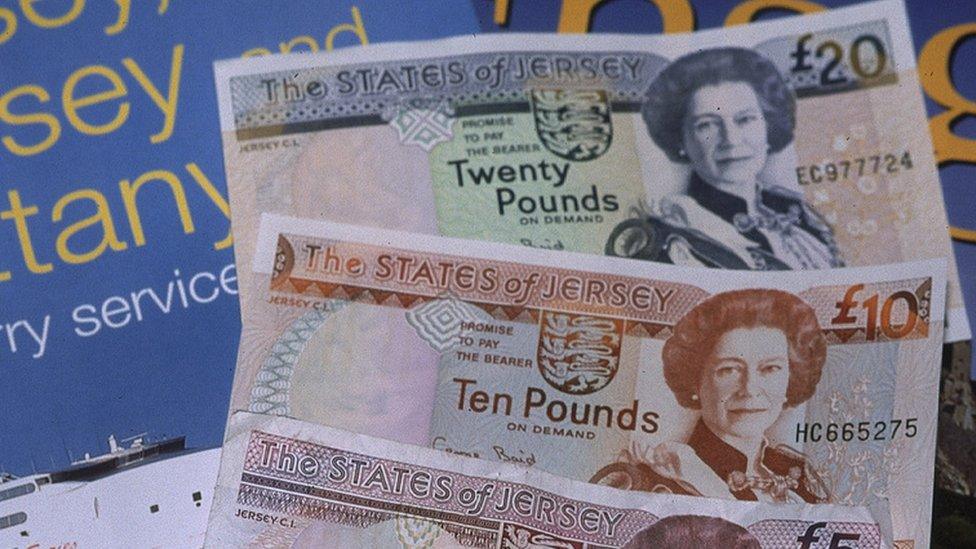Jersey Government Plan: Increased borrowing approved
- Published
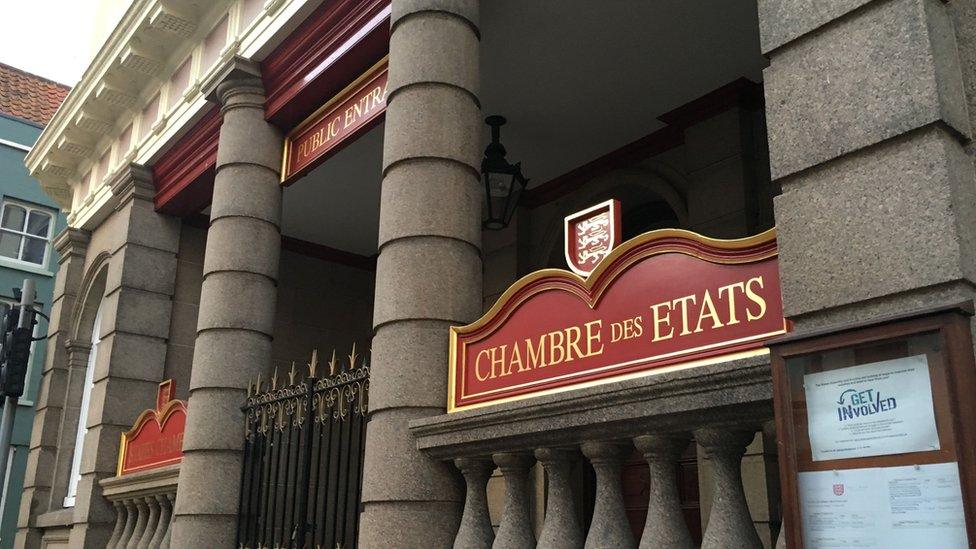
Income tax allowances, fuel and vehicle emissions duty will all increase
Increased borrowing has been agreed for the next three years as Jersey's government looks to pay for its Covid response and a new hospital.
Politicians have approved the government's plan to generate income and spend money from 2022-2025.
It forecasts an annual deficit until balanced budgets return by 2023.
The plan is aimed at meeting key targets such as revitalising the economy, health and wellbeing, population growth and climate change.
Ministers intend to spend £1.18bn in 2022 - the majority on public services.

Analysis from BBC Jersey Political Reporter Freddie Miller
The Government Plan is approved - but it's not exactly the plan Ministers had wanted.
They have had to make a series of concessions: increasing stamp duty on second homes and buy to let investments; amending their plans for taxes on alcohol; offering all children unlimited bus travel for £20 a year.
And that's before you consider the changes they chose not to contest.
Ministers will emphasise major aspects of their strategy remain unchanged - from the £20m Technology Fund to support the digital sector, to the plan to increase borrowing up to 1.7bn by 2025.
But Jersey's financial plans are updated every December, and in their speeches this week, many politicians have shown they're acutely aware the next election is just over six months away.
For now, this vote provides more clarity on the island's financial future.
But with opinion divided both inside and outside the chamber, all could change once islanders have their say on 22 June 2022.

A £10m affordable purchase scheme is aimed at helping more islanders own their own home, while social housing rents will be frozen in 2022 and capped at 80% of the market rate from 2022 onwards.
Amendments to the plan, agreed by the assembly, mean stamp duty will be increased on second homes, holiday homes and buy to let investments from the end of 2022, while children will be offered unlimited annual bus passes for £20.
Some public sector jobs will be lost as government departments have been told to cut their wage bills by more than £4m.
Income tax allowances, fuel and vehicle emissions duty will all increase, while following an amendment brought by Scrutiny and approved by the assembly, tax on alcohol will rise by 2.5%.
The Chief Minister, Senator John Le Fondre, said: "It advances our vision as an assembly of the island's priorities, and it is a balance. It provides for our continued response to Covid, as well as our recovery both economically and socially.
"This plan is able to chart a course to return to balanced budgets without relying on raising taxes, delaying important projects or jeopardising our financial reserves."
He said: "Ultimately this plan invests in Jersey's future, funding the long term projects our island needs and delivering the future islanders deserve."
Senator Kristina Moore, the Chairwoman of the Corporate Services Scrutiny Panel, said: "It doesn't meet enough of the government's own common strategic priorities such as reducing income inequality and improving the standard of living.
"We are all very aware at the moment of the public debate and feeling about the cost of living and this plan does not go far enough in dealing with those, giving hope to islanders that there is a reason to continue to work and contribute to the economy because a better quality of life is ahead."

Follow BBC Jersey on Twitter, external and Facebook, external. Send your story ideas to channel.islands@bbc.co.uk, external.
Related topics
- Published16 December 2021
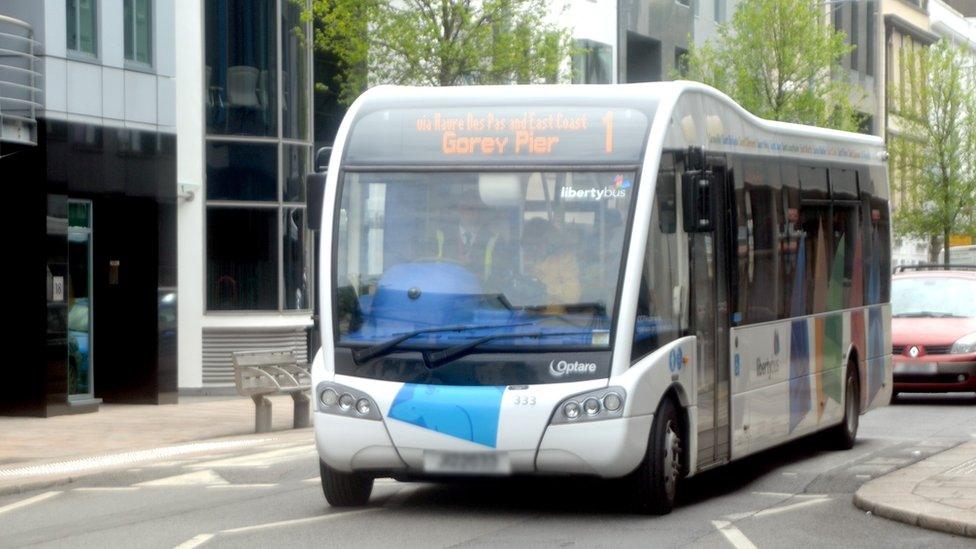
- Published9 November 2021
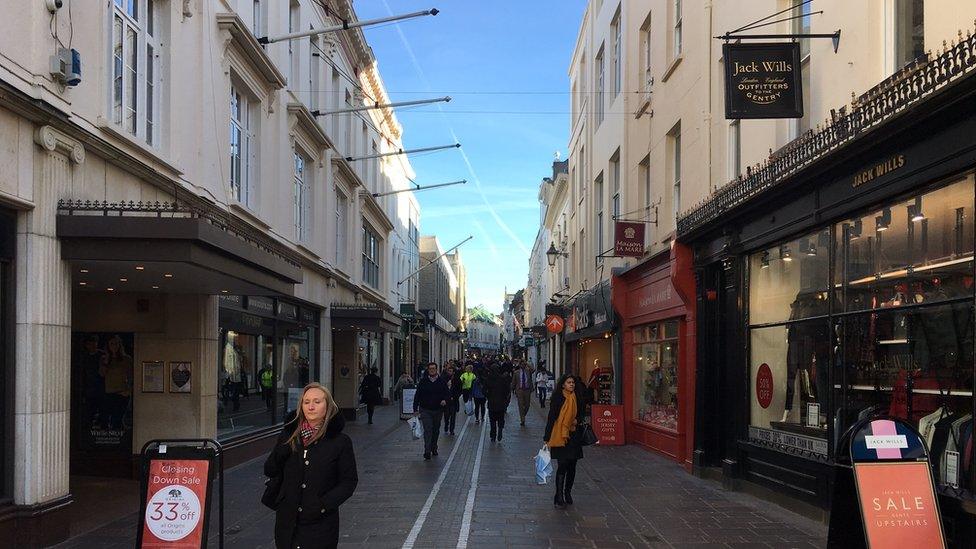
- Published3 November 2021

- Published21 September 2021

- Published9 June 2021
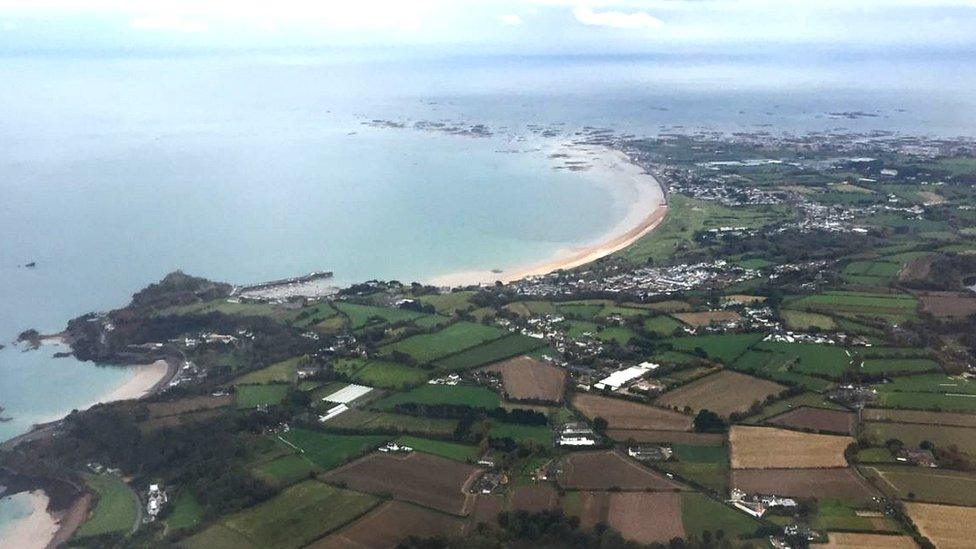
- Published20 May 2021
